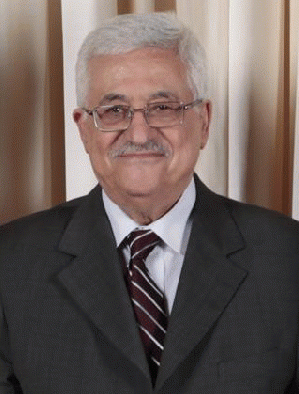President Mahmoud Abbas and the Fatah movement, which he commands, have unleashed a media campaign against Hamas and the resistance. If pressure from the Palestinian public fails to stop the campaign, Abbas may achieve politically what Israel failed to achieve militarily: forcing the Palestinian presidency to choose "peace with Israel" over national reconciliation.

Mahmoud Abbas
(Image by (From Wikimedia) Official White House Photo by Lawrence Jackson, Author: Official White House Photo by Lawrence Jackson) Details Source DMCA
It appears that President Abbas has, indeed,
prioritised "peace with Israel."
He has devised plans for resuming negotiations, and is still banking on
American support for such talks. This is the only explanation for the current
anti-Hamas media campaign.
Abbas sent his negotiators -- Saeb Erekat, Majed Faraj and Maen Erekat -- to Washington, where they met with US Secretary of State John Kerry a week ago last Wednesday. US State Department spokesperson Jen Psaki described the more than two-hour meeting as "constructive". Abbas then prepared to obtain an Arab mandate, which seems guaranteed in advance, for his plans from the 142nd session of the Arab foreign ministers conference, held in Cairo this week.
However, US Ambassador to the UN Samantha Power poured cold water over the Palestinian Authority (PA) president's bid to obtain US backing for his plan, which he intends to put before the UN Security Council and UN General Assembly. The proposal would end the Israeli occupation of the West Bank and Gaza within three years, during which period negotiations would resume within three months with the occupying power over its borders with the Palestinian state.
"We don't think there are shortcuts or unilateral measures that can be taken at the United Nations or anyplace else that will bring about the outcome that the Palestinian people most seek," Power said in a press conference last week. "To think that you can come to New York and secure what needs to be worked out on the ground is not realistic."
This clearly translates into an unequivocal US "No." The Palestinian president's new plan has run up against the same American wall that Palestinian negotiators have faced since negotiations were adopted as a strategic approach. The Zionist route remains the only way these negotiators can access the White House and the UN Security Council.
There can be only one explanation for this plan. It is in fulfilment of a Palestinian promise not to resist the occupation and to offer the occupying power the opportunity to agree to yet another futile round of negotiations. Such negotiations will give Israel the time it needs to turn the Givaot colony into a major settler city on the 4,000 dunams of Palestinian land that it has just seized by declaring it "state land".
The purpose of this appropriation is to separate the Hebron and South Bethlehem governorates in the West Bank. It is also a means to deflect international humanitarian pressure in reaction to Israeli war crimes in Gaza, to evade Israel's obligations to the truce agreement with the resistance in Gaza, and to fuel internal Palestinian tensions until they reignite once more.
It was not Hamas or the resistance that described Abbas's new plan as a "spurious process". It was independent Palestinian figures who expressed their views in a statement read out by Mamdouh Al-Akr, general commissioner of the Independent Organisation of Human Rights, on 2 September in Ramallah. They called for an urgent meeting of the unified leadership of the Palestine Liberation Organisation (PLO), in accordance with the Cairo agreement of 2011, so that it can serve as a frame of reference for the Palestinian will and take critical national decisions.
(Note: You can view every article as one long page if you sign up as an Advocate Member, or higher).




